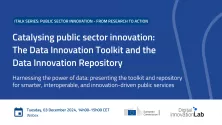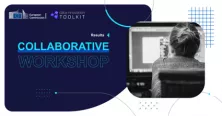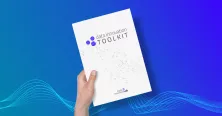
The toolkit developed by the Digital Innovation Lab from the European Commission to help data enthusiasts effectively use data for the public good.
Despite the abundance of data, the excitement around AI, and the potential for transformative insights, many public administrations struggle to translate data into actionable strategies and innovations.
Public servants working with data-related initiatives, need practical, easy-to-use resources designed to enhance the management of data innovation initiatives.
In order to address these needs, the iLab of DG DIGIT from the European Commission is developing an initial set of practical tools designed to facilitate and enhance the implementation of data-driven initiatives.

The main building blocks of the first version of the of the Digital Innovation Toolkit include:
-
A Repository of educational materials and resources on the latest data innovation approaches from public sector, academia, NGOs and think tanks
-
An initial set of practical resources, some examples:
-
Checklists to ensure that all data journey aspects and steps are properly assessed.
-
Interactive Exercises to engage team members in hands-on activities that build skills and facilitate understanding of key concepts and methodologies.
-
Canvas Models to provide visual frameworks for planning and brainstorming.
-
Workshop Templates to offer structured formats for conducting productive workshops that foster collaboration, ideation, and problem-solving.
Download the tools!
Here's the full list. Each tool includes:
- Editable template: a .doc you can download and modify as needed.
- Example: a completed version to show you how it works.
- Session: access to the related training session (when available).
Planning
Are you figuring out what you want to achieve and what you’ll need to get there? The planning stage involves defining the problem, identifying stakeholders, building a team, spotting data gaps, and understanding your users’ perspective.
Challenge Definition Tool
This tool helps teams to precisely identify and articulate the key issues they aim to resolve, summarising them in a single statement.
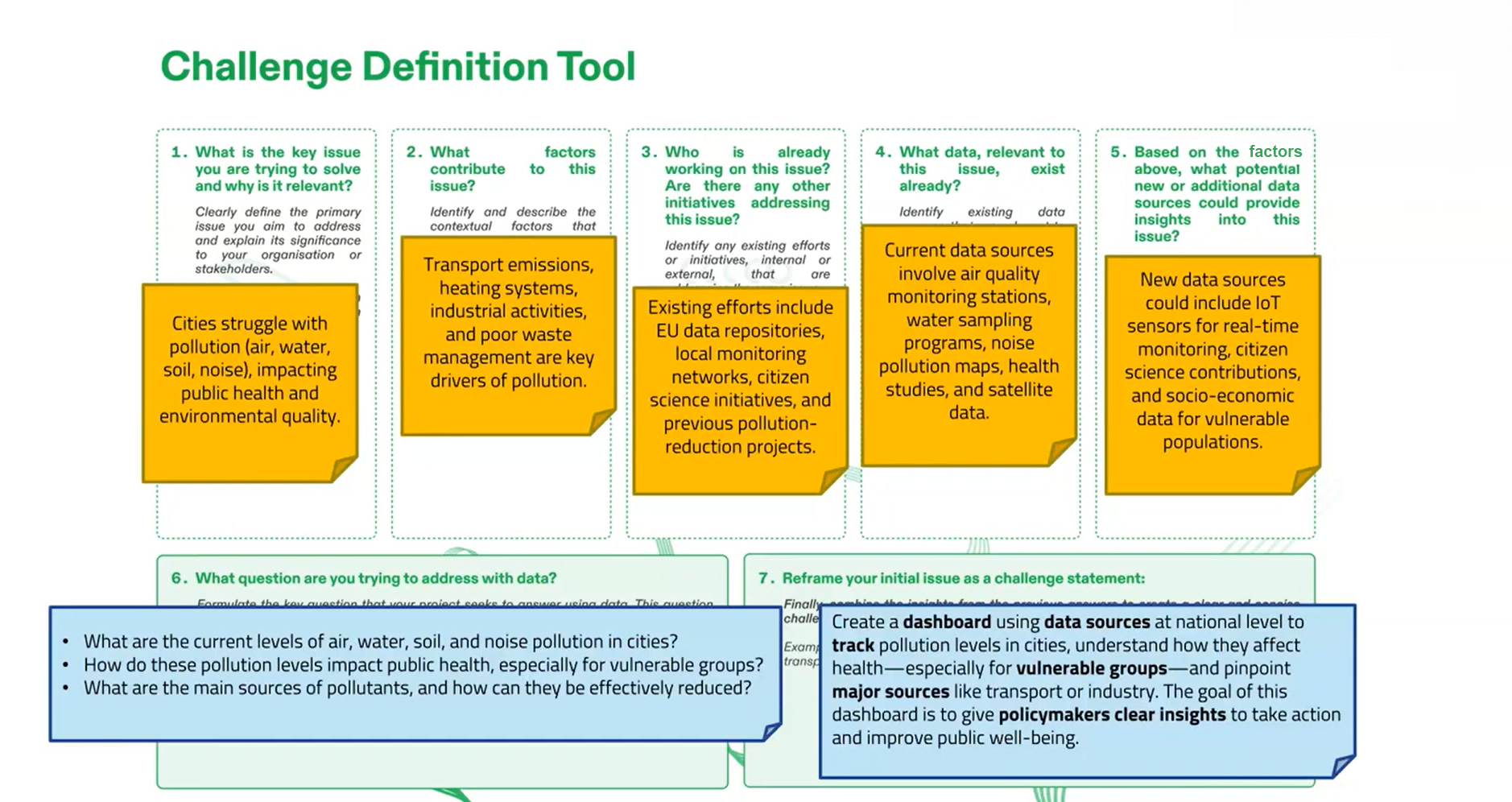
Stakeholder Mapping Tool
This tool helps you engaging the right people is crucial for data innovation projects.
Download the editable template
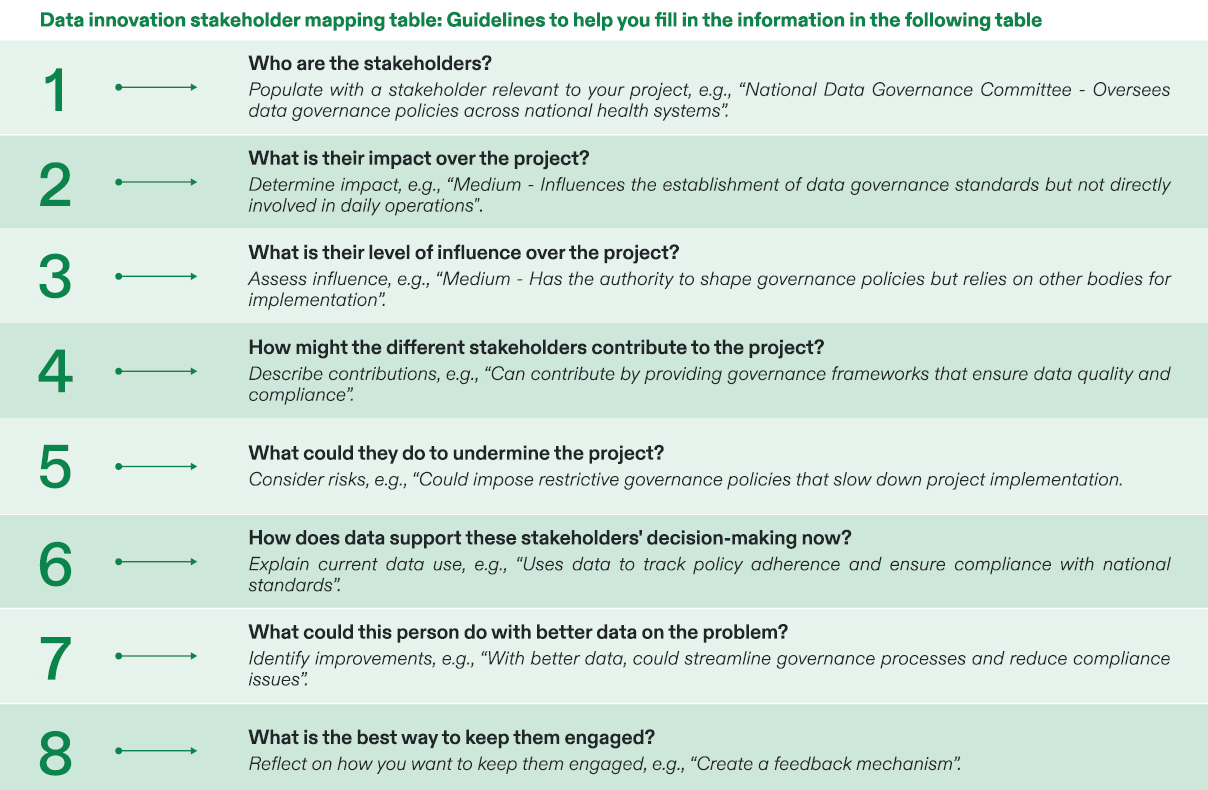
Data Team Creation
This tool helps you identifying individuals within your organisation who can assist you in carrying out your initiative.
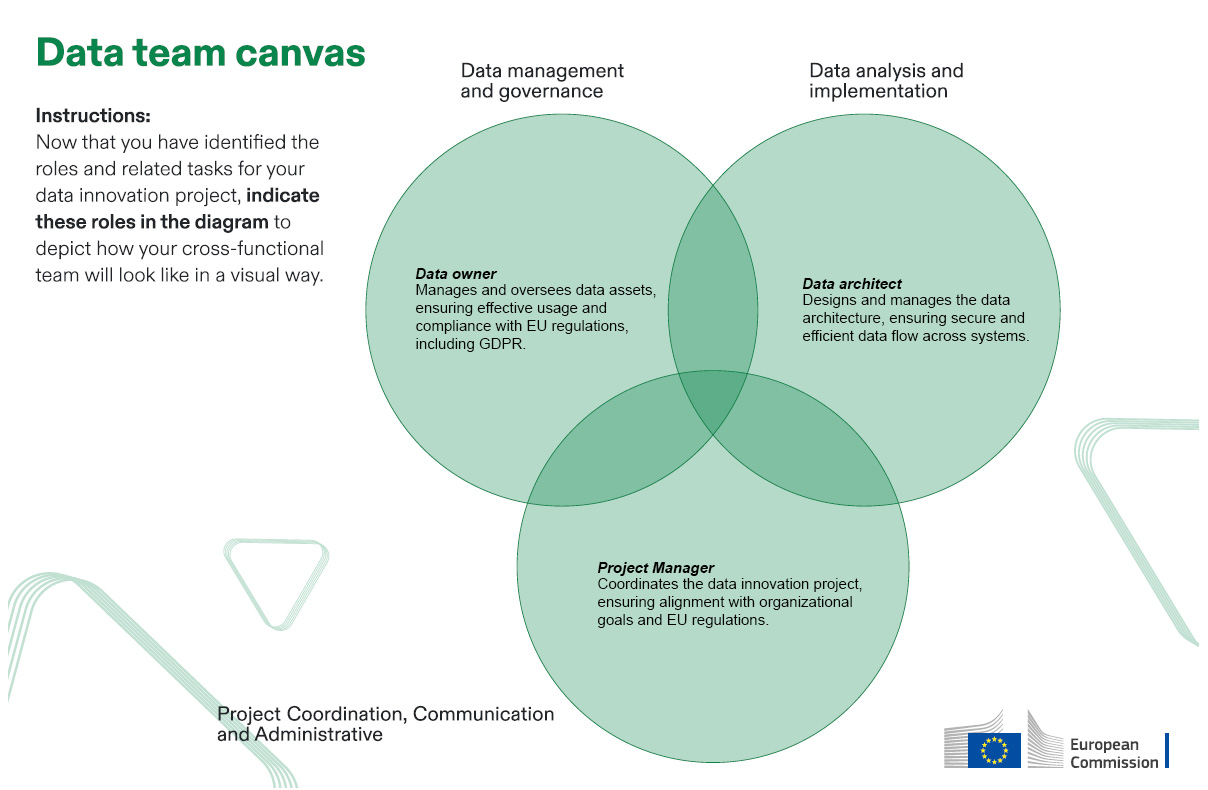
Role’s Definition Tool
This tool defines the team's members shared responsibilities and their role with data in more detail, using a RACI matrix.
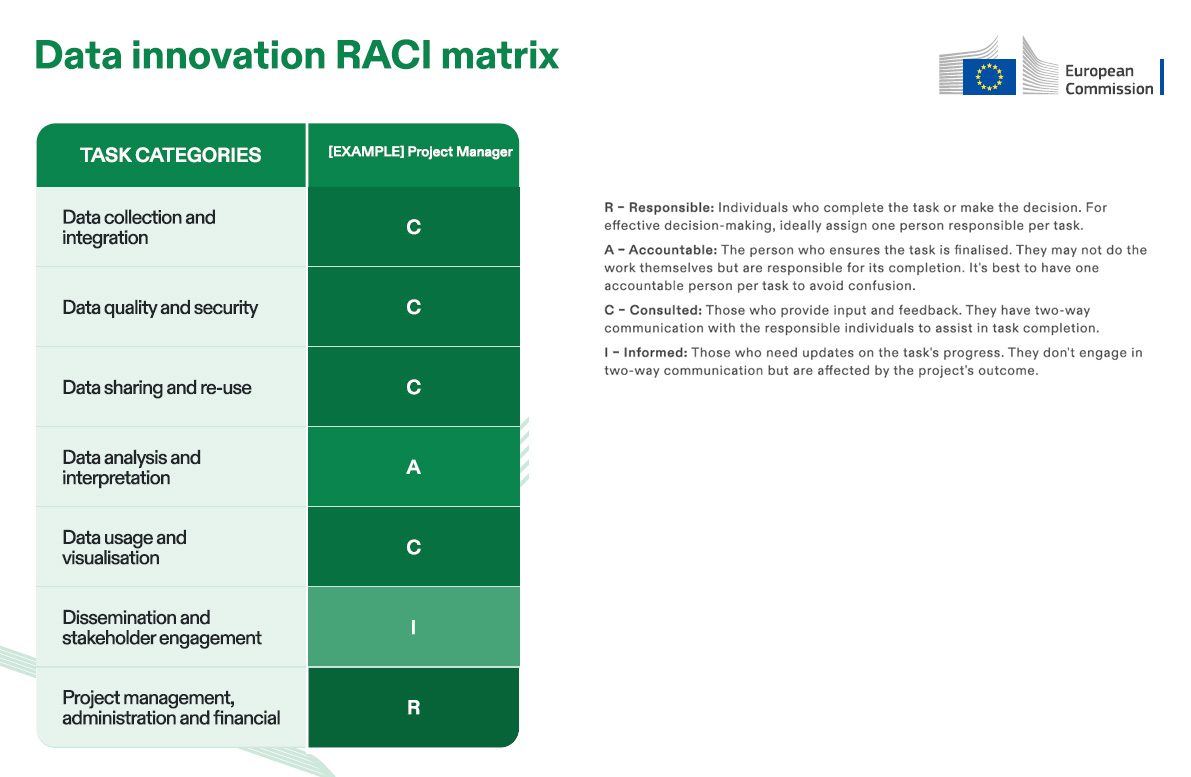
Persona Creation Tool
This reference model used to represent specific types of users, known as behavioural archetypes.
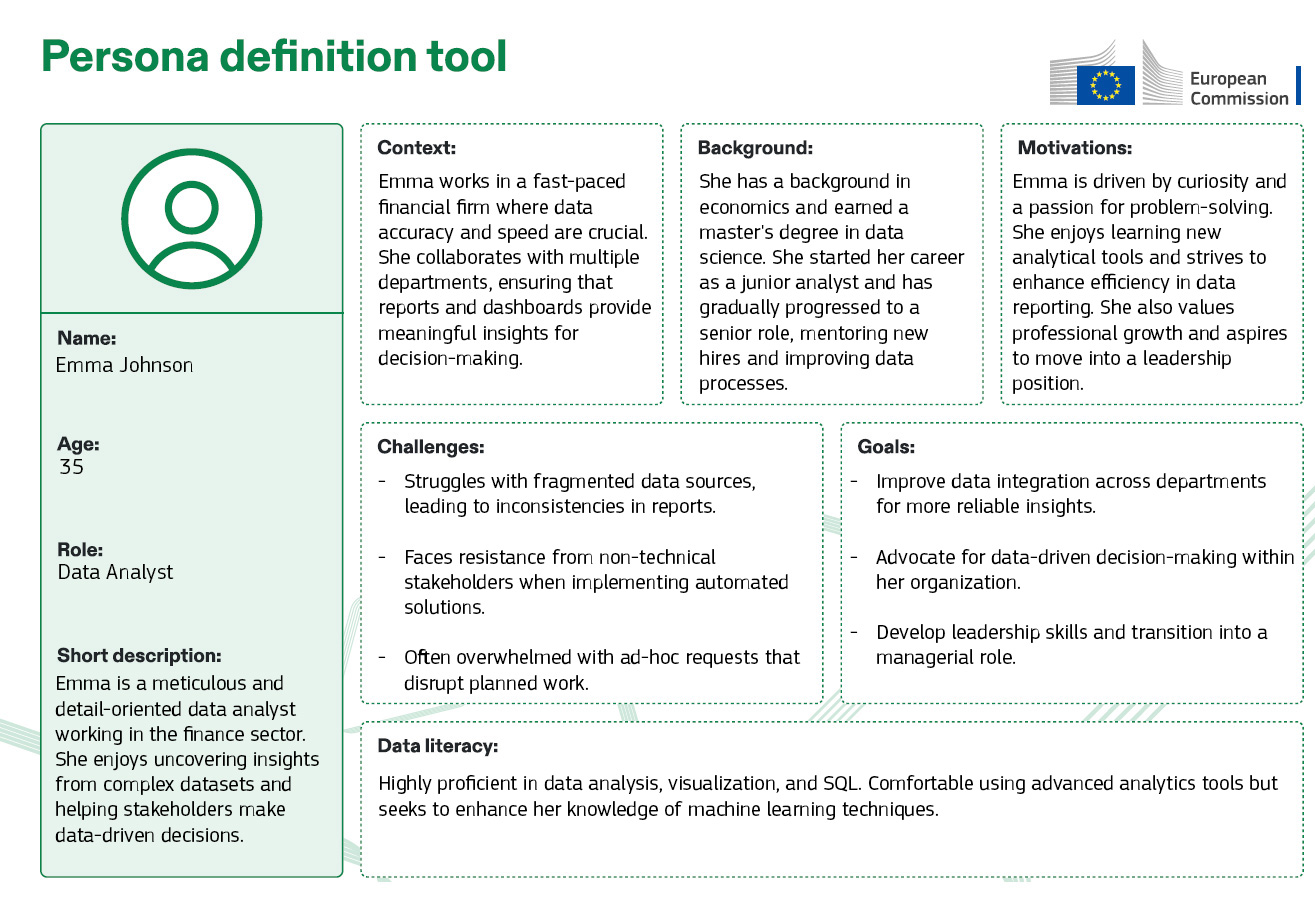
Data Journey Mapping
This synthetic representation describes step-by-step how a user might interact with your data.
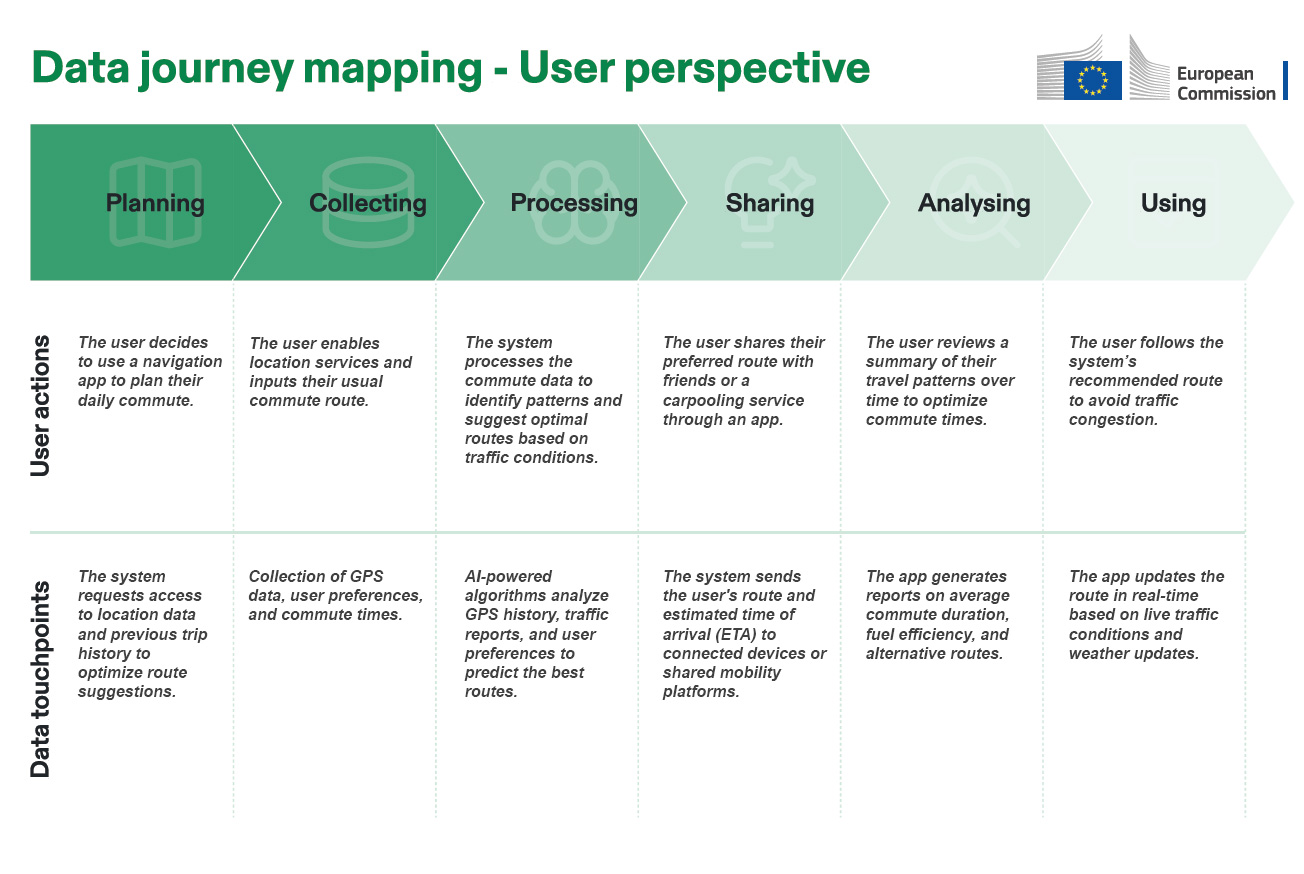
Collect & process
This stage involves the collection of data that will be used in your data innovation project, data quality, data storage, security, privacy concerns and data preparation to enable analysis.
Data Gaps Checklist
This tool helps you to identify any potential gaps in your available data that could hinder your progress.
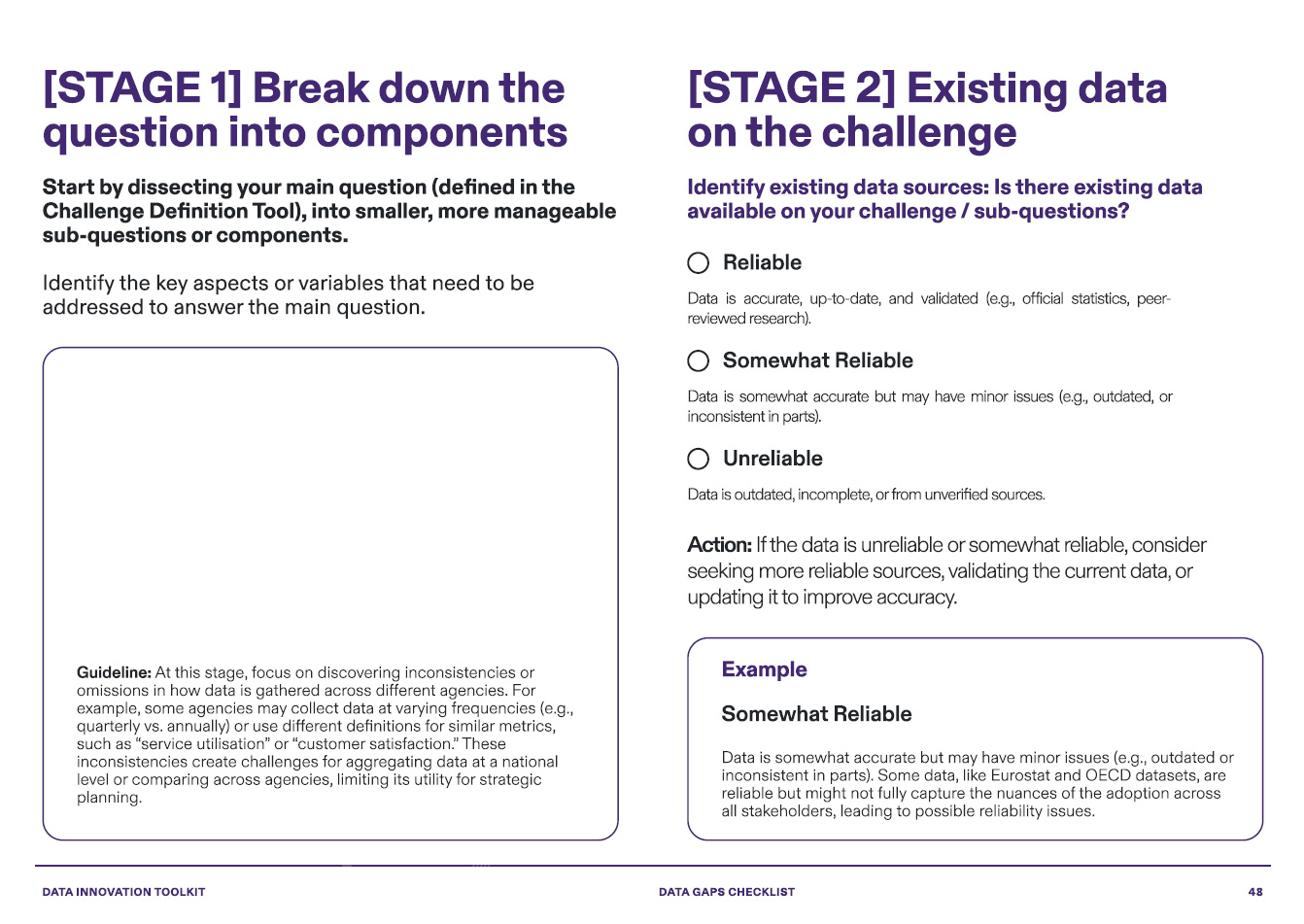
Data Collection Template
This tool guides your team in systematically organising and planning the data collection process.
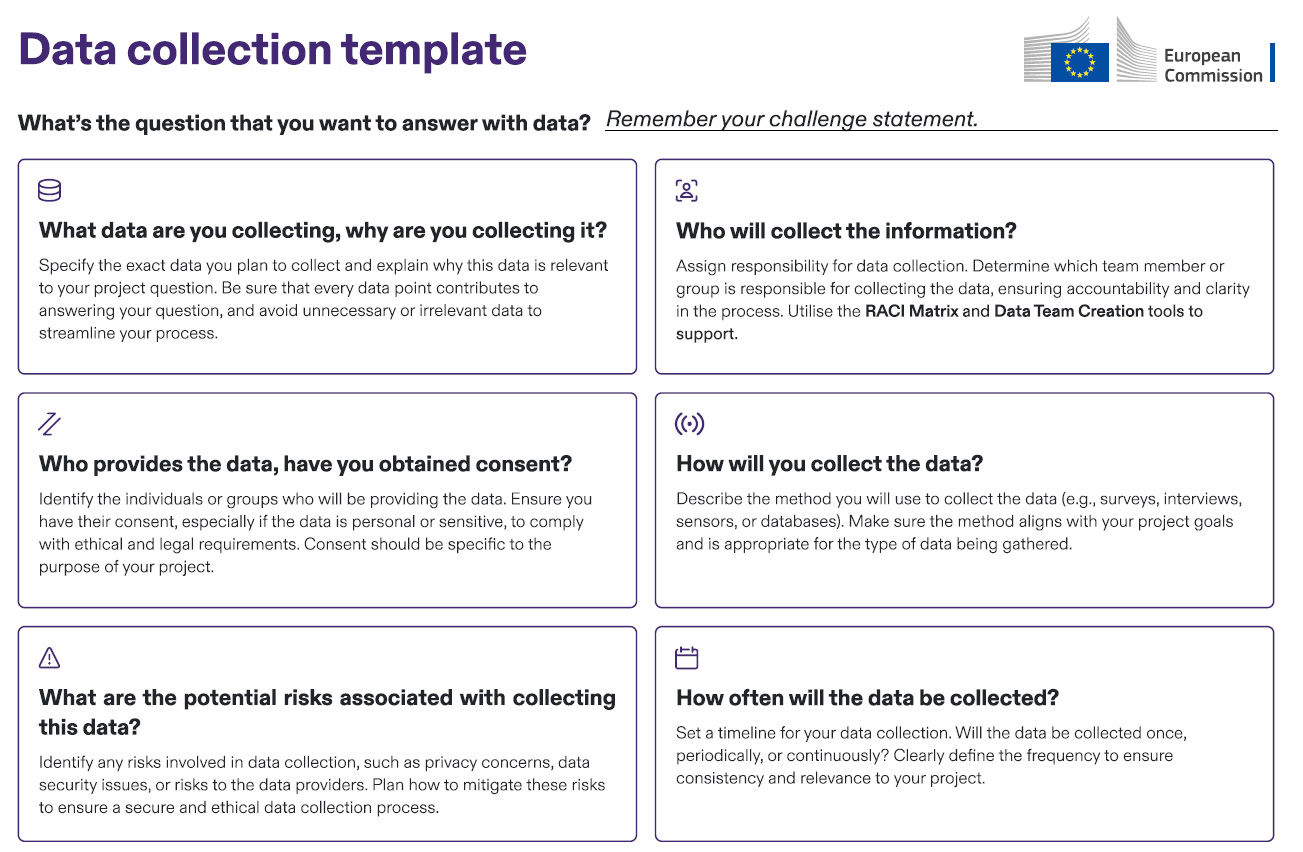
Data Collection Checklist
This tool helps you to identify the right data sources, validating and securing information, and ensuring privacy and compliance.
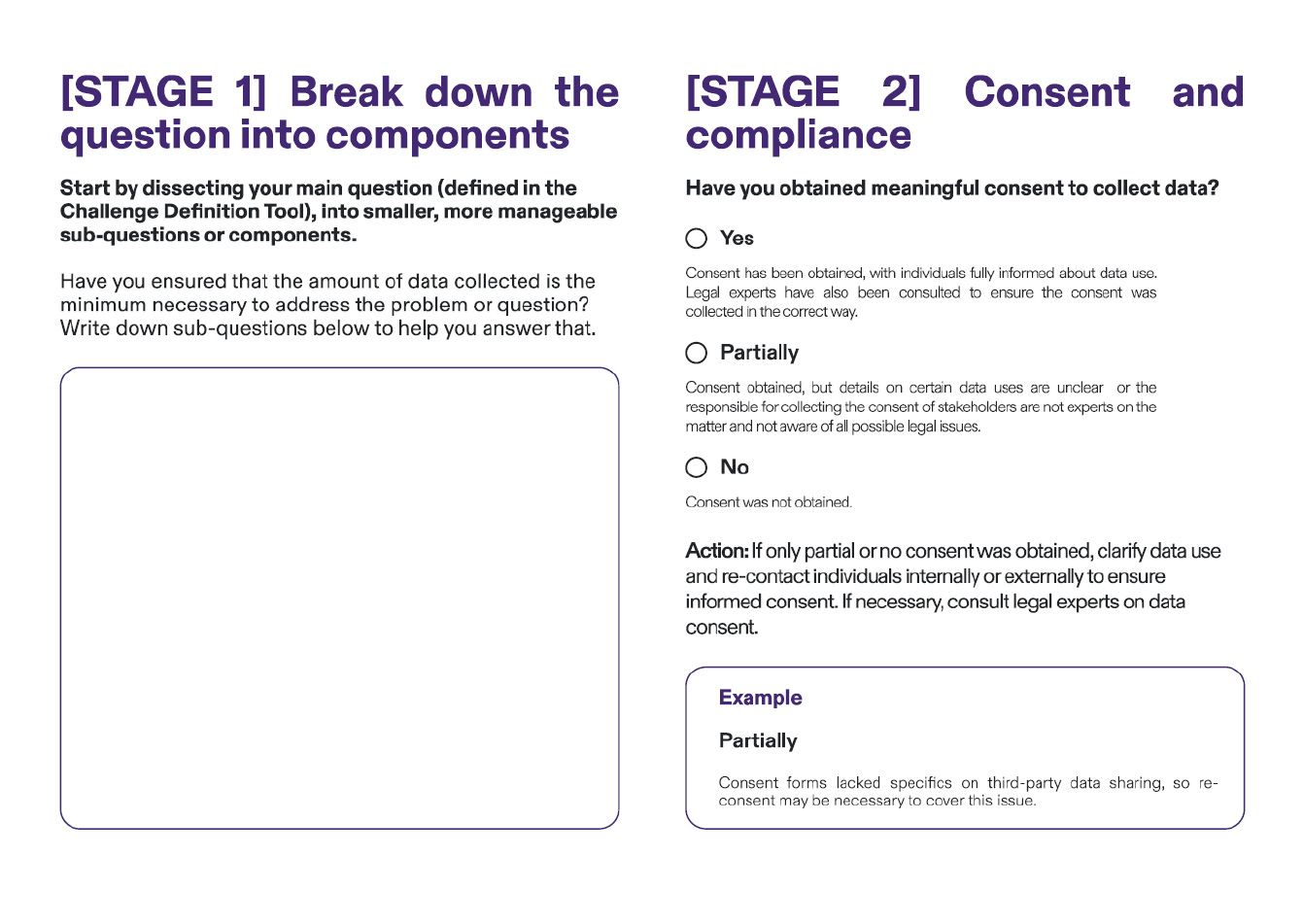
Data Quality Exercise
This tool is designed for teams, organisations, or projects that need to explore and establish a clear understanding of data quality.
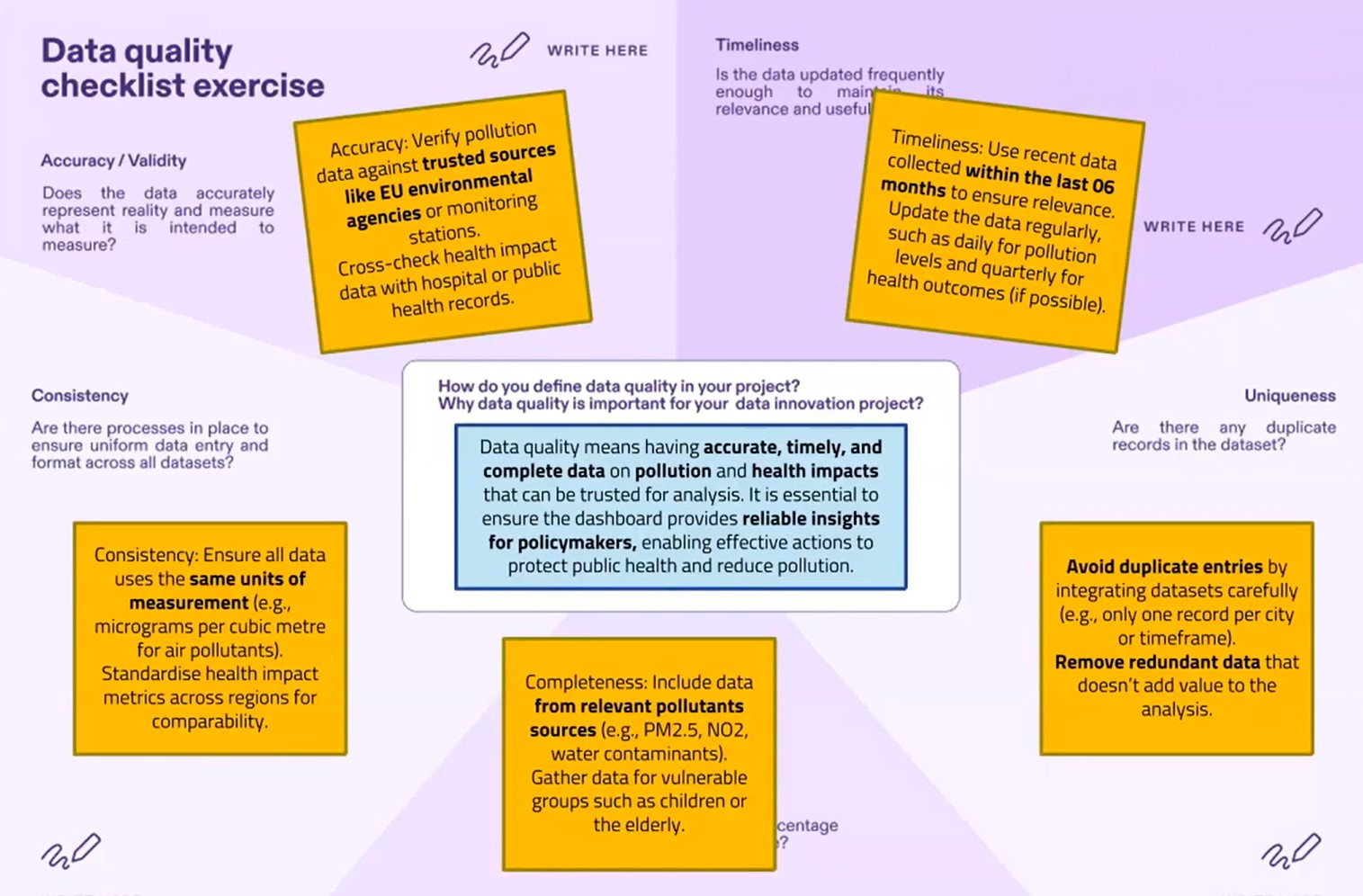
Data Processing Cards
This tool increases the interactivity and manageability of the data processing stage.
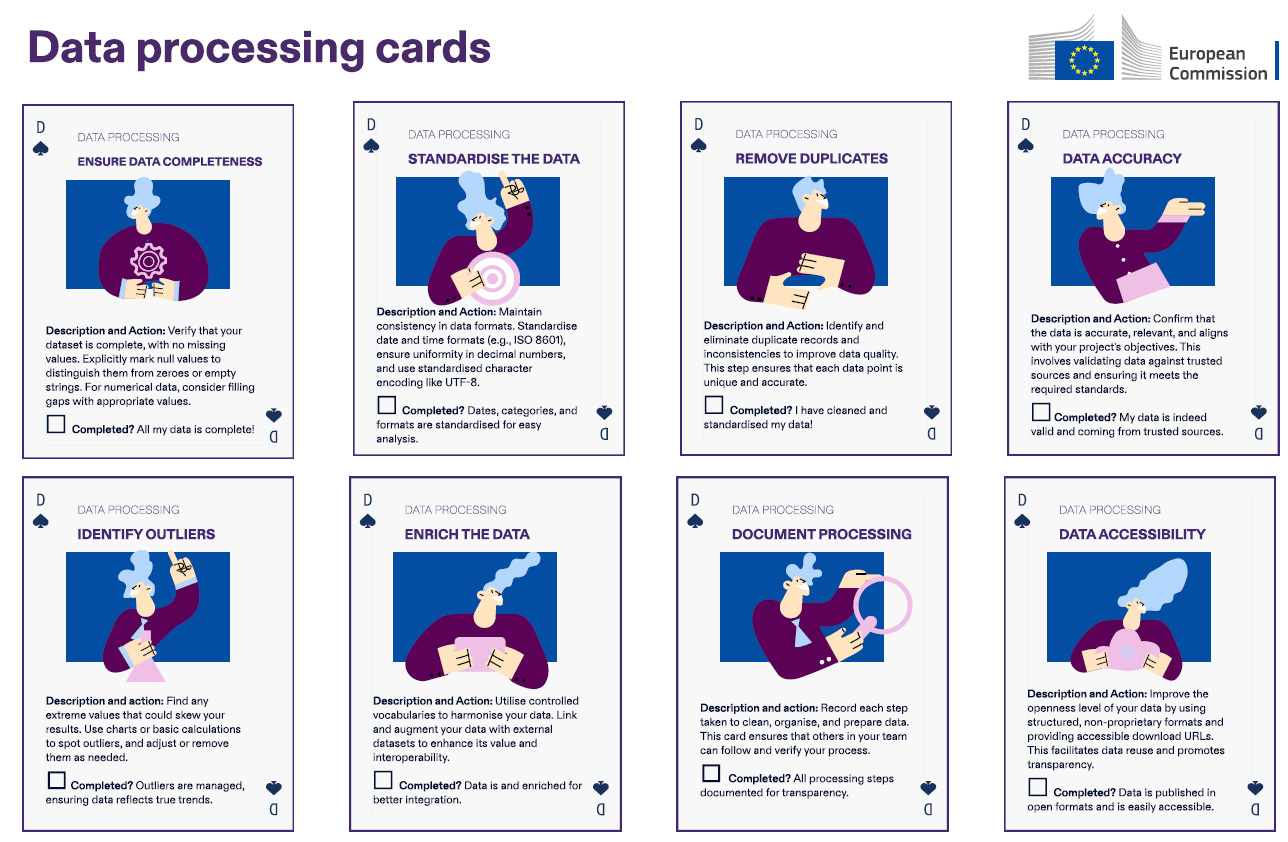
Share & Analyse
Here, you ensure secure and compliant data transfers, addresses legal and ethical considerations, and involves exploratory and targeted data analysis to generate actionable insights aligned with your project's objectives.
Data Sharing Template
This tool helps teams to clearly define and organise the process of sharing data between organisations or individuals.
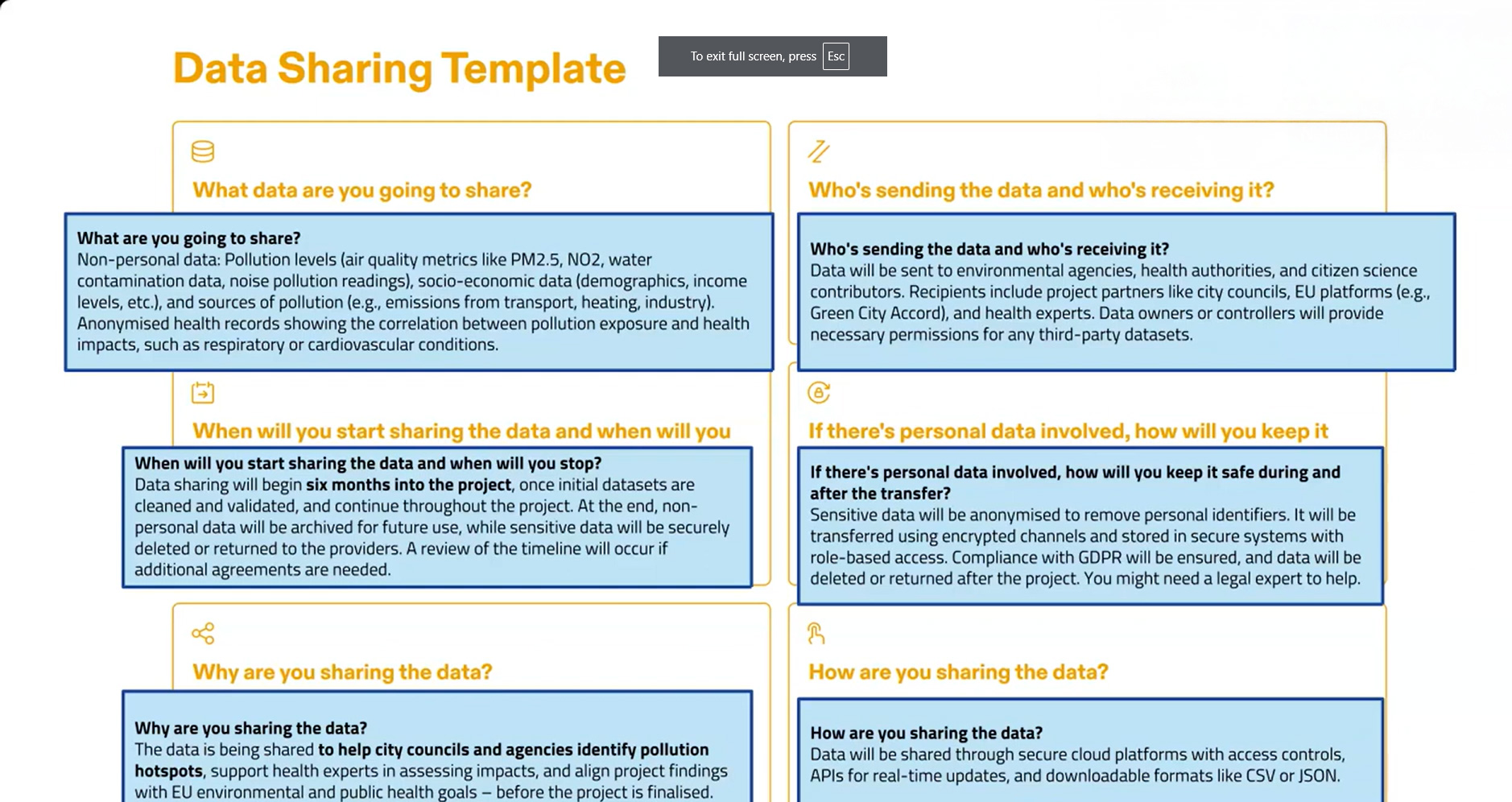
Data Sharing Checklist
This tool provides a structured approach to ensure that data is shared securely, legally, and transparently.
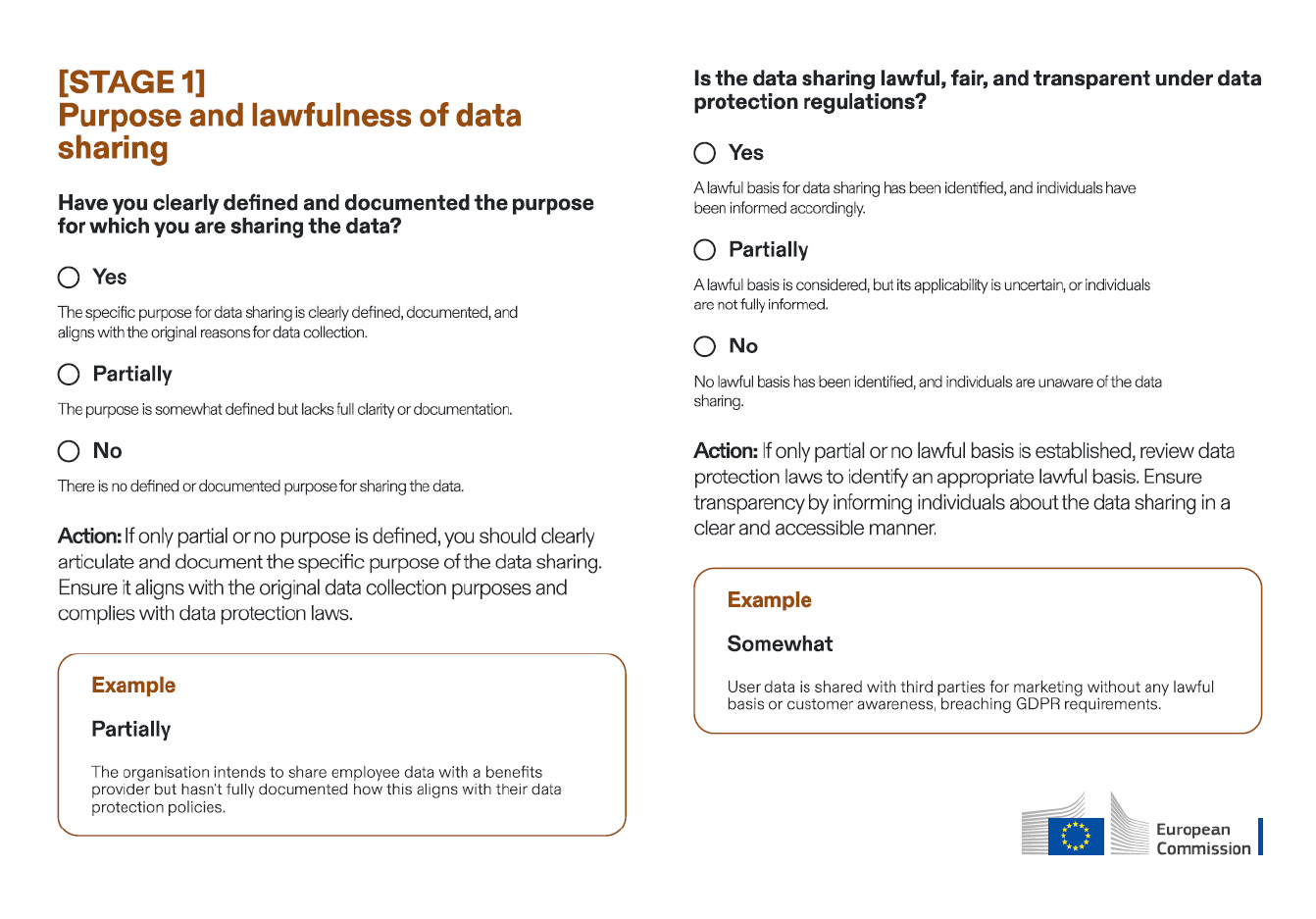
Data Analysis Template
This tool helps you to choose the right tools and methods to reach your project’s goals.
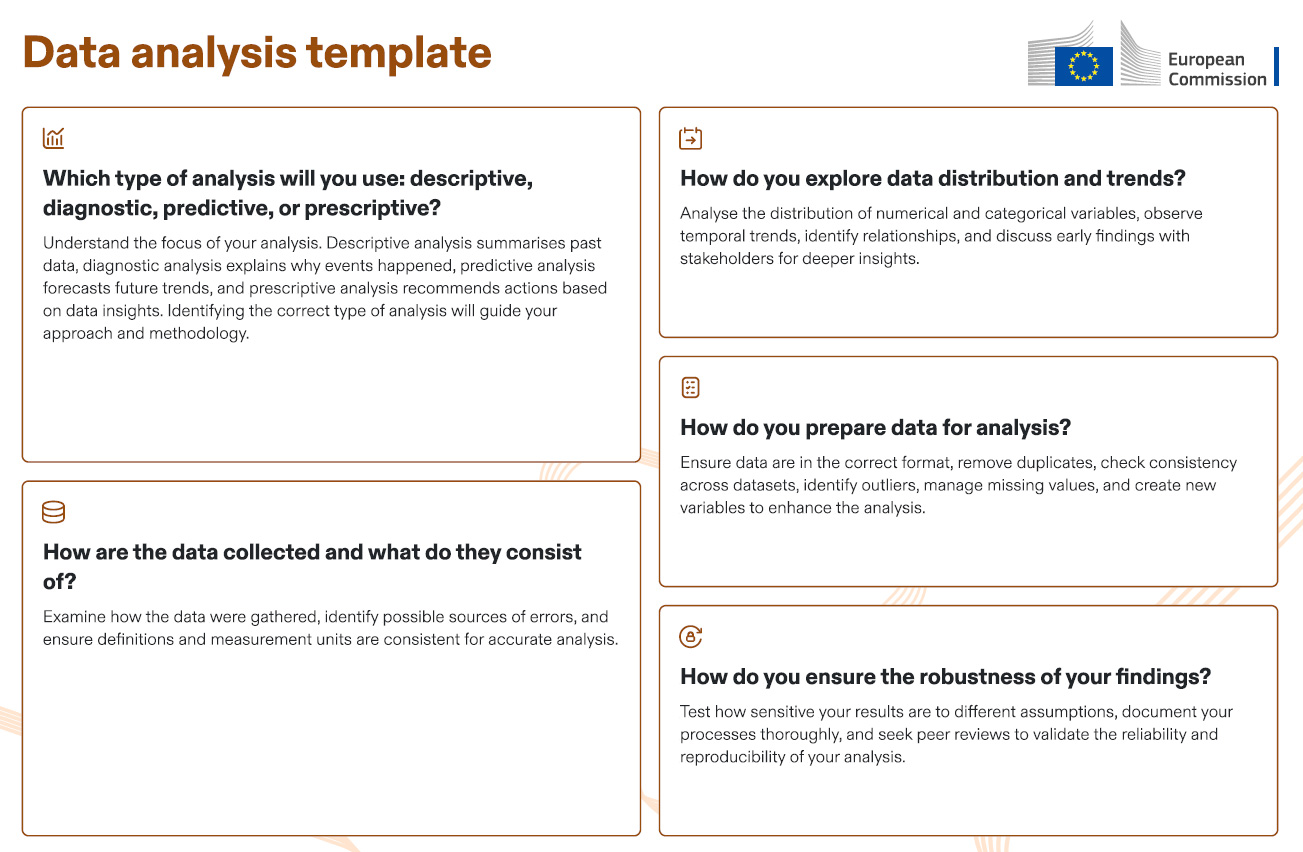
Use & Evaluate
This stage translates insights into action, communicates findings, manages data retention, measures success, and plans for scalability and future strategies.
Data Using Checklist
This tool shows how to responsibly manage data at the end of the project.
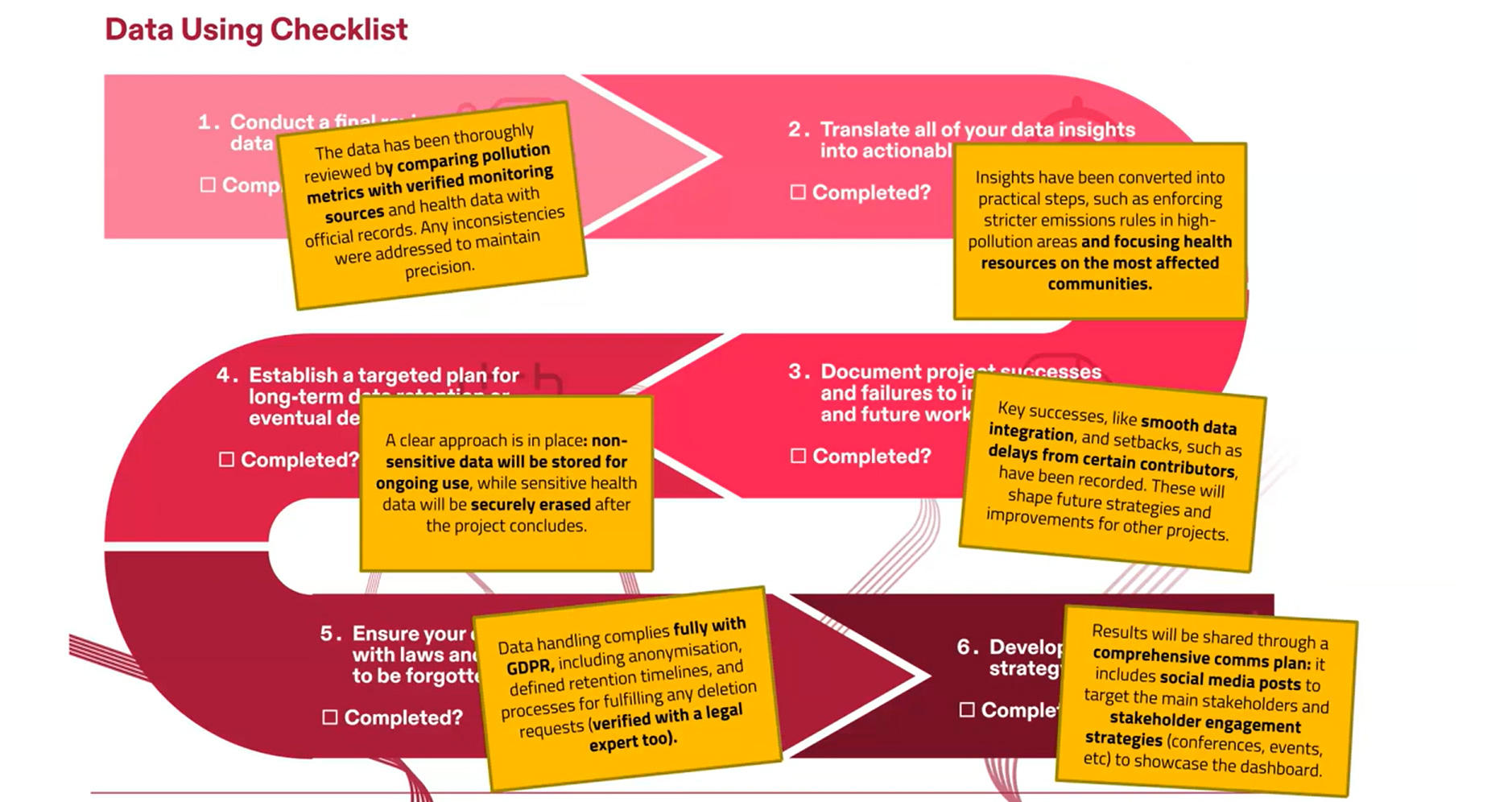
KPI Creation Tool
This tool defines the type of data that you will track to measure your solution’s effectiveness over time.
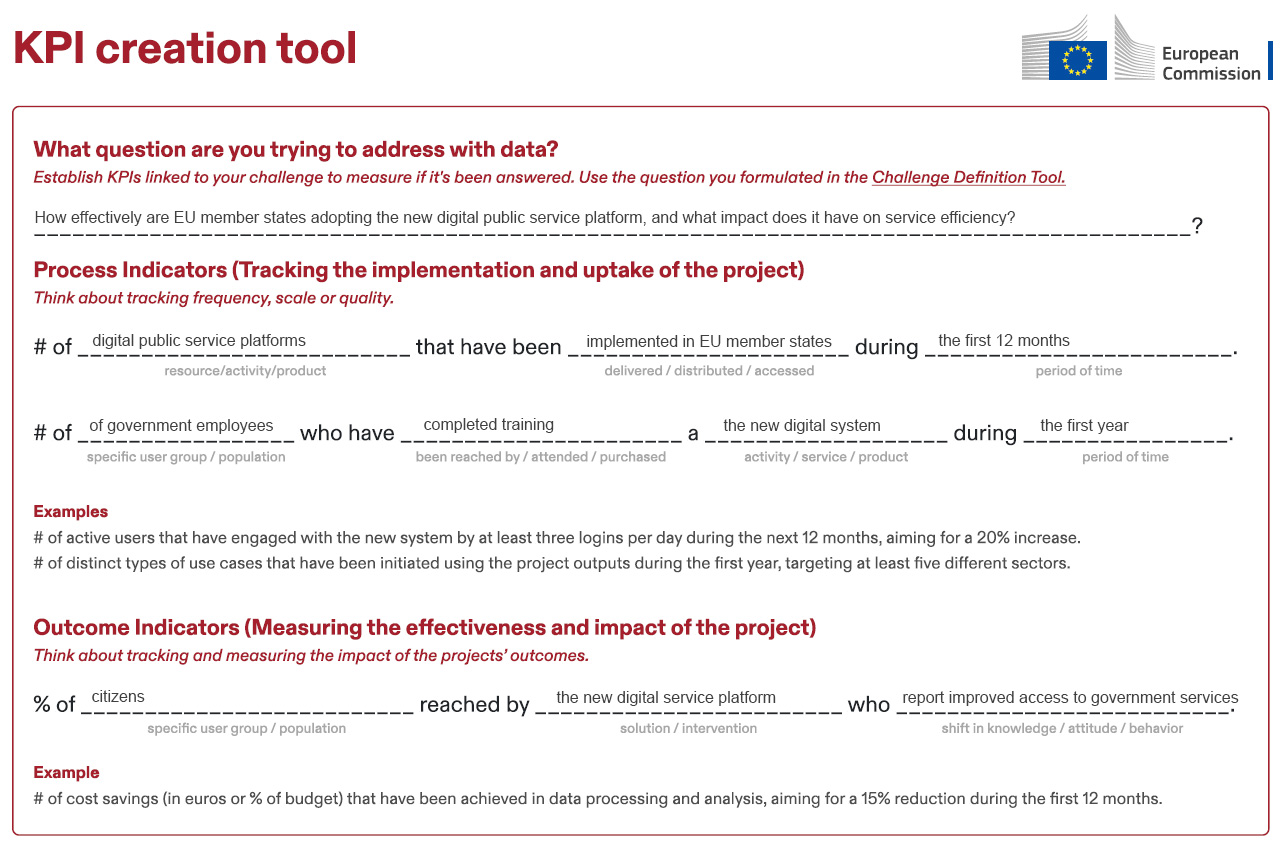
Measuring impact and evaluating success tool
This tool helps you to evaluate the effectiveness and outcomes of your data innovation project.
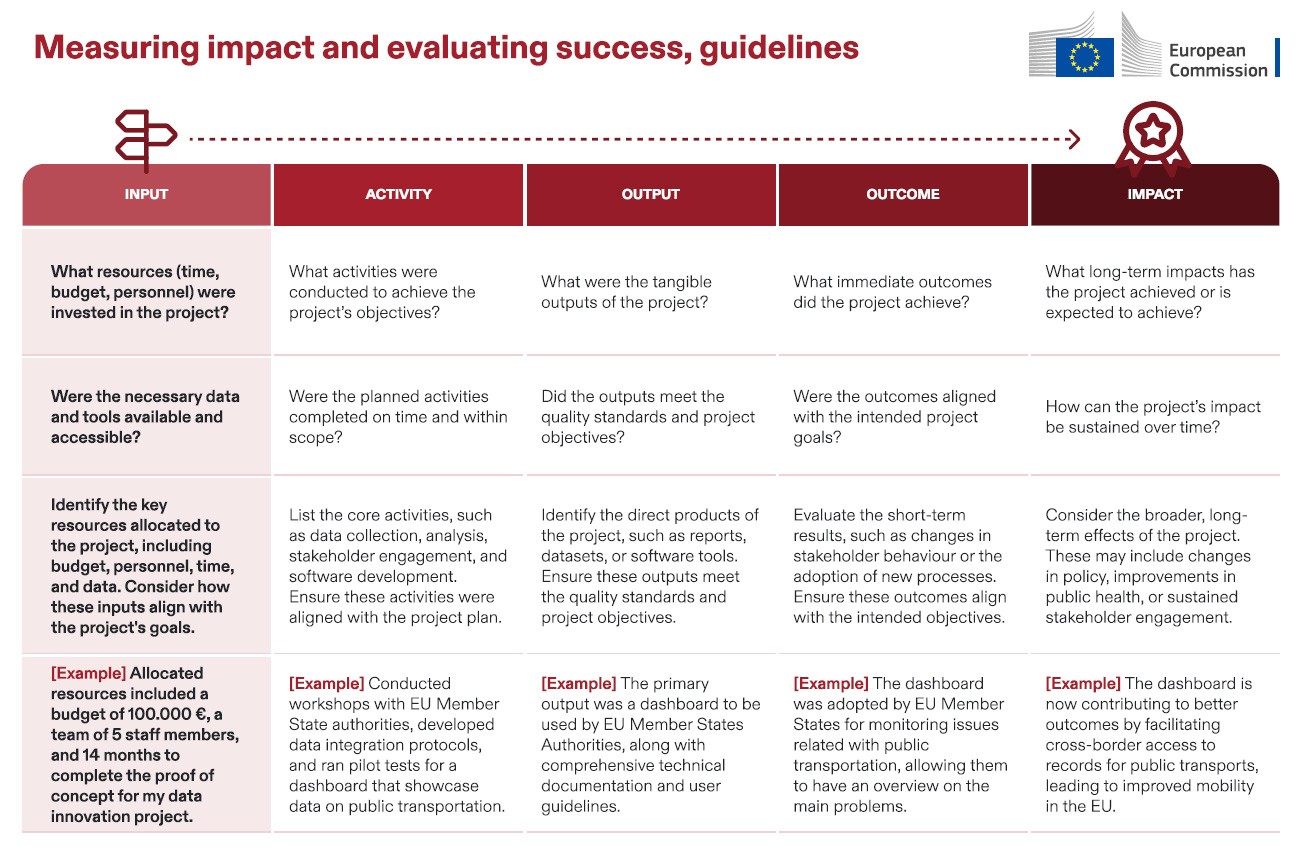
Scalability Plan Tool
This tool helps you to manage costs, maintain funding, and handle increased complexity.
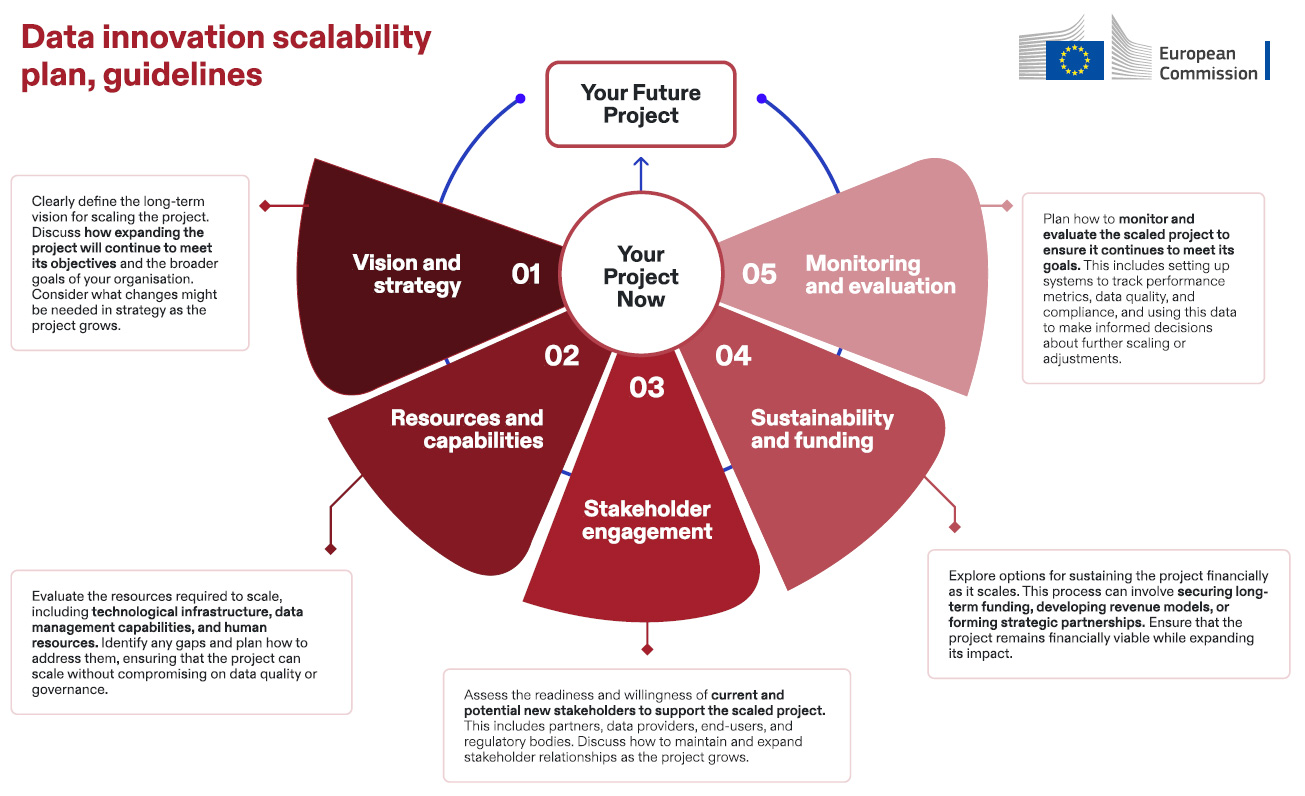
Our journey in the creation of the Data Innovation Toolkit

The development of the Data Innovation Toolkit is structured into a series of focused stages to ensure its effectiveness for public sector use.
-
Repository: literature review on existing content and user-friendly interface to navigate, access and filter a curated set of best practices and resources.
-
Interviews and workshops: gather direct feedback and refine the toolkit’s relevance and utility for its users.
-
Development of a Minimum Viable Product (MVP) & creation of an initial set of practical tools.
-
Usability tests and workshops to fine-tune its functionality and user-friendliness.
Latest News
Related Initiatives

The European Commission Digital Innovation Framework
The European Commission Digital Innovation Framework fosters the Digital Innovation in the
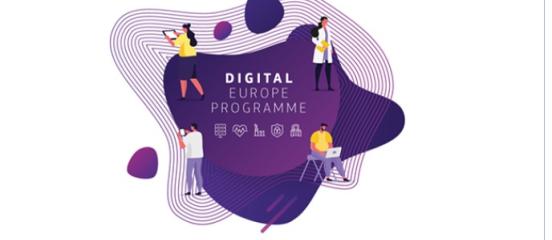
Big Data Test Infrastructure (BDTI)
BDTI provides public administrations with a free analytics cloud stack for data re-use and analysis


